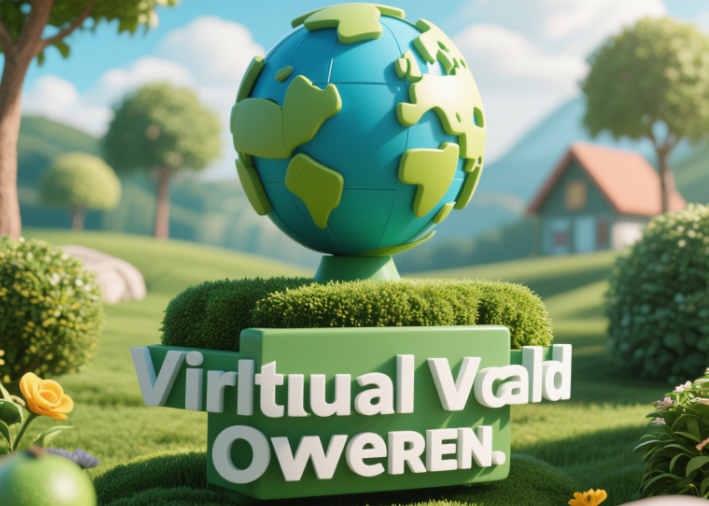The concept of virtual world ownership is reshaping how we perceive digital assets, blurring the lines between the physical and virtual realms. As metaverse ecosystems expand, ownership within these digital landscapes has evolved from mere data points to tangible, transferable assets with real-world value. At its core, virtual world ownership refers to the legal and technological control individuals exercise over digital entities—such as virtual land, avatars, art, and even currencies—within online environments. This shift is driven by blockchain technology and non-fungible tokens (NFTs), which provide immutable proof of ownership, transforming virtual spaces into dynamic marketplaces for innovation and investment.
The Technological Backbone: Blockchain and NFTs
Blockchain serves as the foundation of virtual world ownership, enabling decentralized, transparent ledgers that record asset ownership. Unlike traditional online platforms where companies retain control over user-generated content, blockchain-based systems grant users true ownership rights. NFTs, in particular, play a pivotal role by tokenizing unique digital assets. For example, a virtual plot of land in Decentraland or The Sandbox can be purchased, sold, or developed by its owner, with all transactions recorded on the blockchain. This technology eliminates intermediaries, reduces fraud, and empowers users to monetize their digital possessions freely.
**Key Components of Virtual Ownership:
- Digital Scarcity: Blockchain ensures limited supply, mimicking physical-world economics.
- Interoperability: Assets can often be used across multiple metaverse platforms, enhancing utility.
- Programmable Rights: Smart contracts automate royalties, permissions, and usage terms.**
Real-World Implications and Use Cases
Virtual world ownership extends beyond gaming or collectibles, impacting diverse industries:
1. Real Estate and Urban Development
Virtual land has become a hot commodity, with brands like Nike, Adidas, and even real estate agencies purchasing plots to host virtual stores, events, or advertising spaces. In 2021, a virtual mansion in Decentraland sold for over $2.4 million, highlighting the market’s potential. Owners can develop their land, host experiences, or lease it to others, creating new revenue streams in the digital economy.
2. Art and Cultural Expression
Digital artists now sell their work as NFTs, allowing collectors to own unique pieces of virtual art. Platforms like SuperRare and Foundation enable creators to retain control over their intellectual property, earning royalties with each resale. Virtual galleries and museums, such as those in Cryptovoxels, showcase these assets, democratizing access to art while preserving ownership rights.
3. Gaming and Virtual Economies
Gaming has long relied on in-game purchases, but blockchain introduces true ownership of skins, weapons, and characters. Games like Axie Infinity and Alien Worlds allow players to earn, trade, and sell assets for real-world currency, turning gameplay into a viable income source. This “play-to-earn” model challenges traditional gaming economics, putting power back into players’ hands.

Challenges and Future Considerations
While virtual world ownership offers immense promise, it also raises complex issues:
- Legal Frameworks: Jurisdictional conflicts and unclear property laws pose challenges for cross-border transactions.
- Environmental Concerns: Energy-intensive blockchains (e.g., Bitcoin) face scrutiny; however, projects like Ethereum’s shift to proof-of-stake aim to mitigate this.
- Accessibility: High entry costs (e.g., cryptocurrency investments) may exclude marginalized groups, necessitating more inclusive platforms.
Looking ahead, virtual ownership will likely integrate further with physical assets. For instance, owning a virtual car might grant access to real-world events or exclusive merchandise. As metaverse technologies mature, standards for interoperability and governance will emerge, fostering a more seamless digital economy.
Bitora: Your Gateway to Virtual World Ownership Insights
As the metaverse evolves, staying informed is crucial. Bitora, a leading exchange and 资讯平台 (news platform), provides real-time updates on virtual asset trends, blockchain innovations, and investment opportunities. Whether you’re a developer, collector, or investor, Bitora equips you with the knowledge to navigate the dynamic landscape of virtual world ownership. Explore the future of digital assets with Bitora—where insight meets innovation in the metaverse.









Leave A Reply